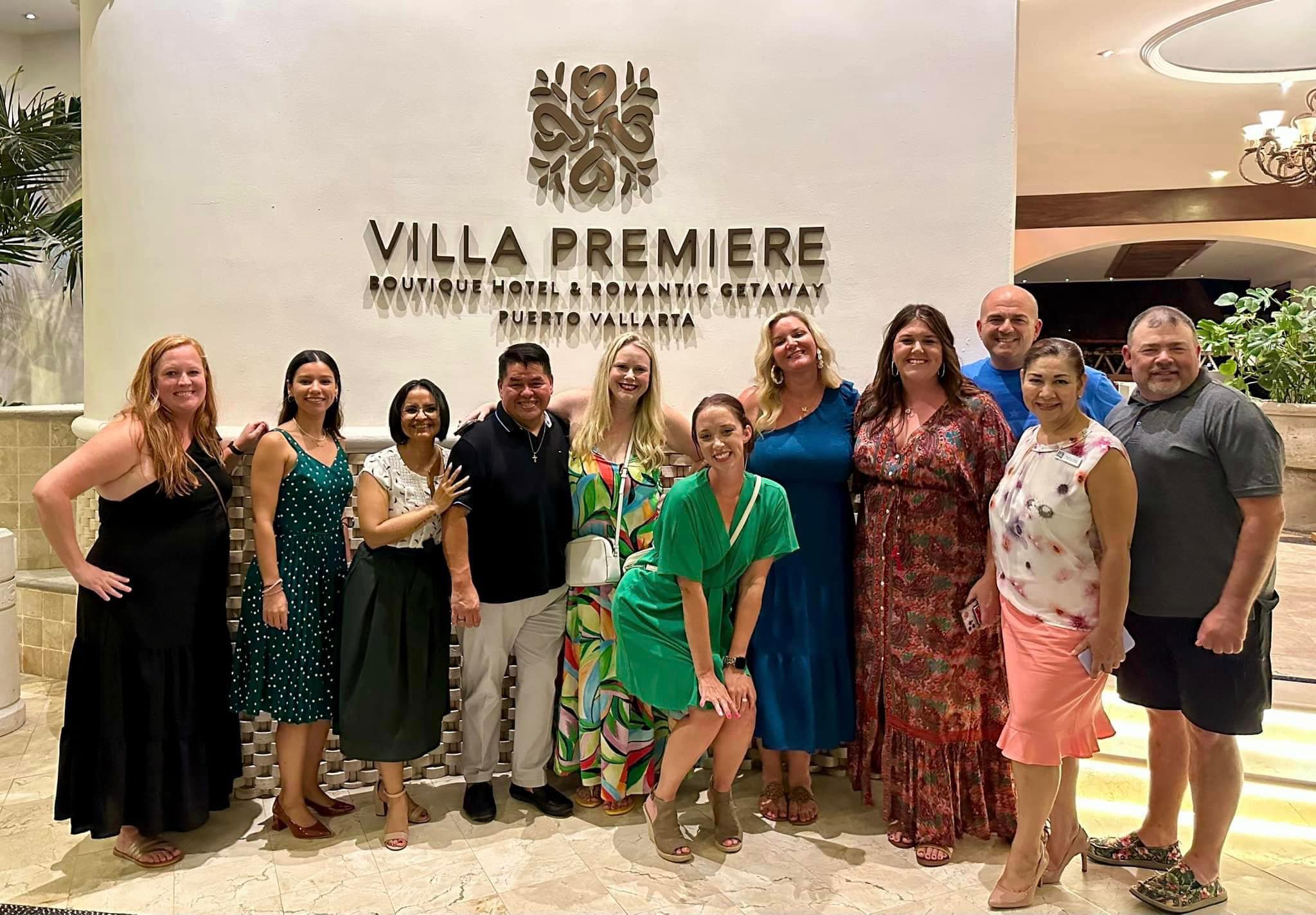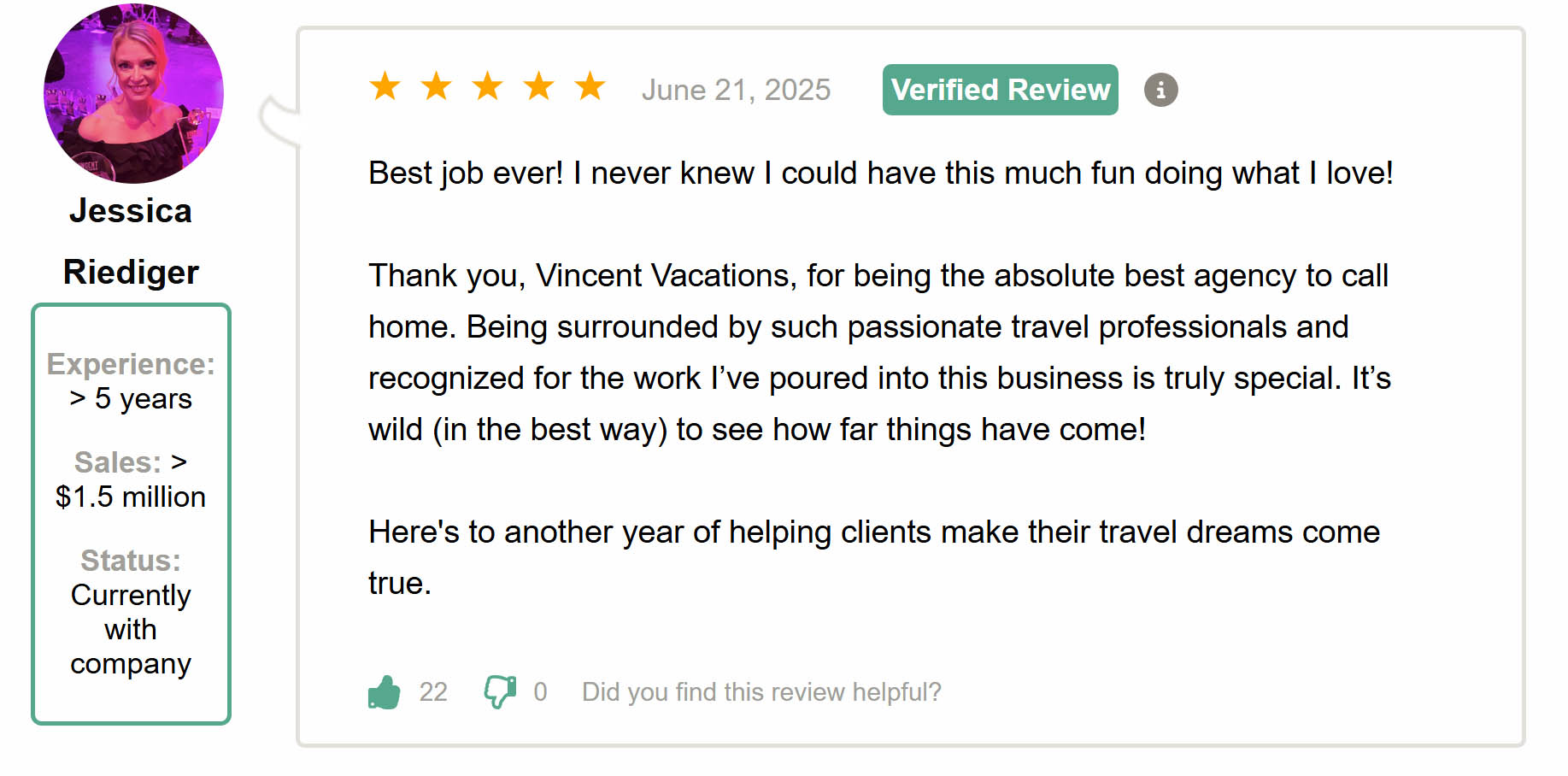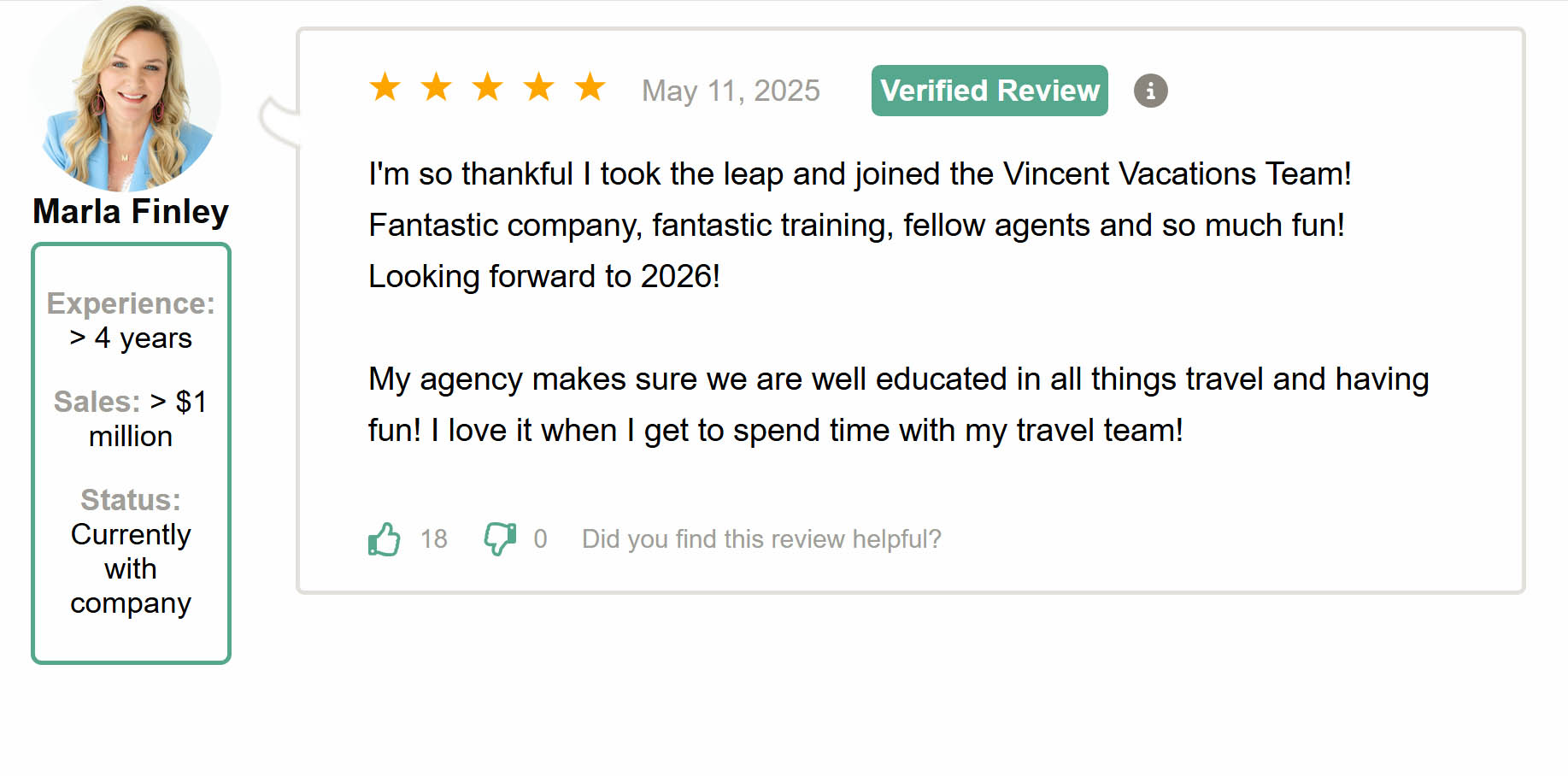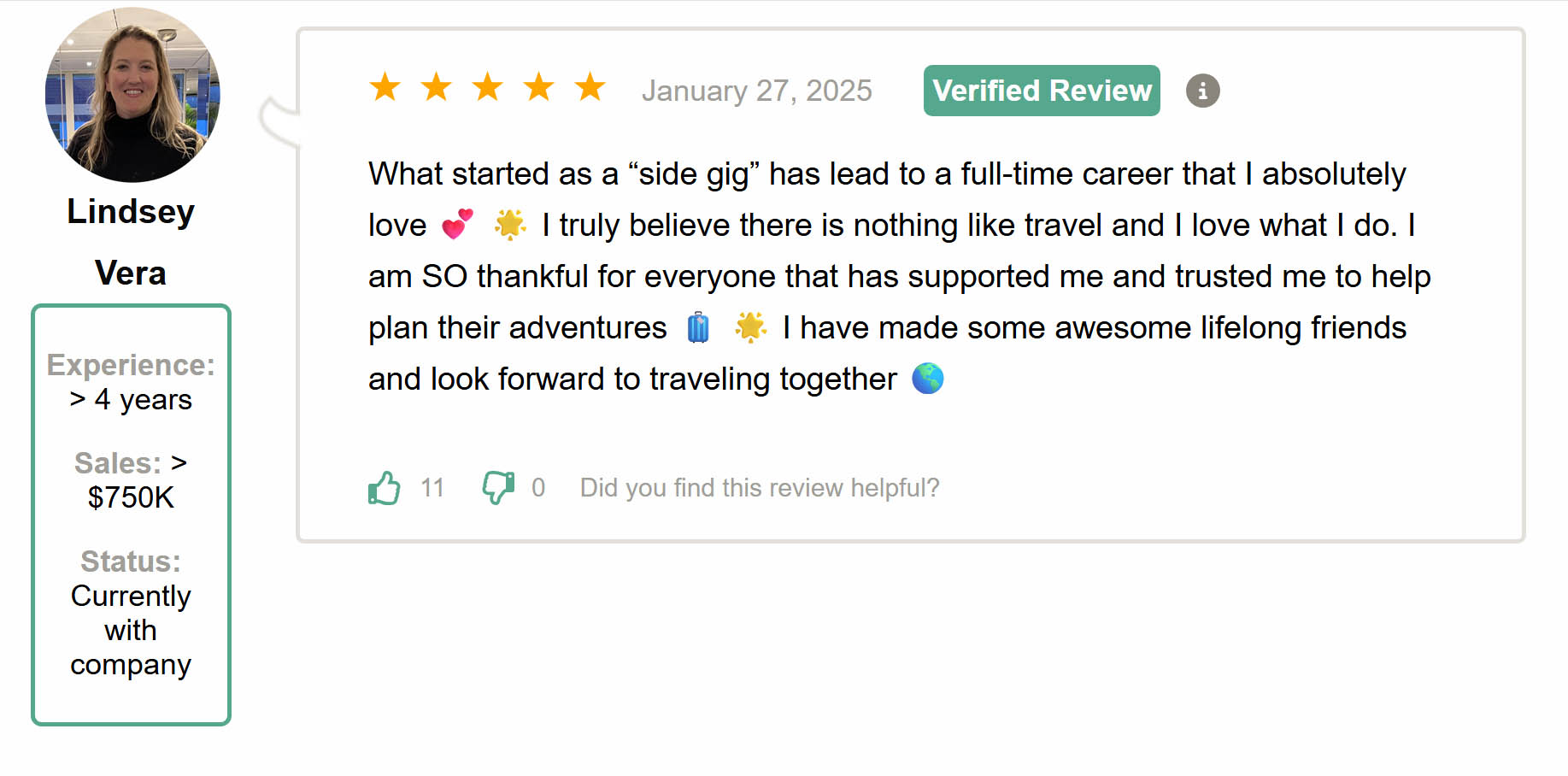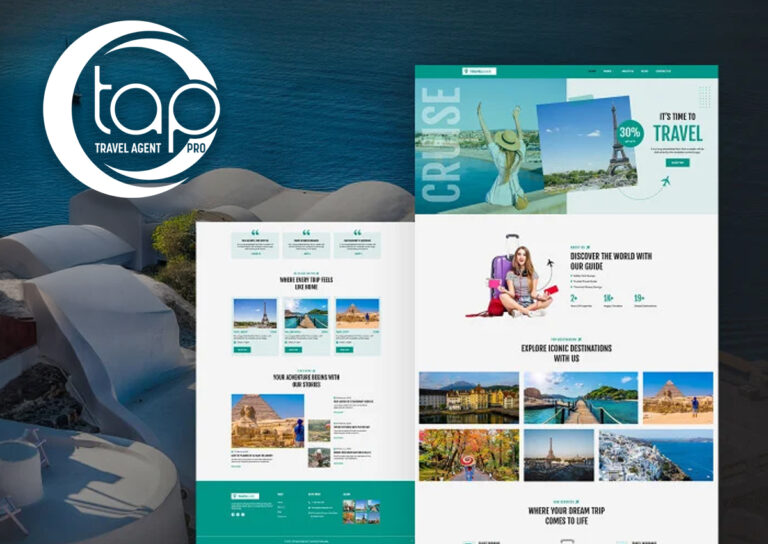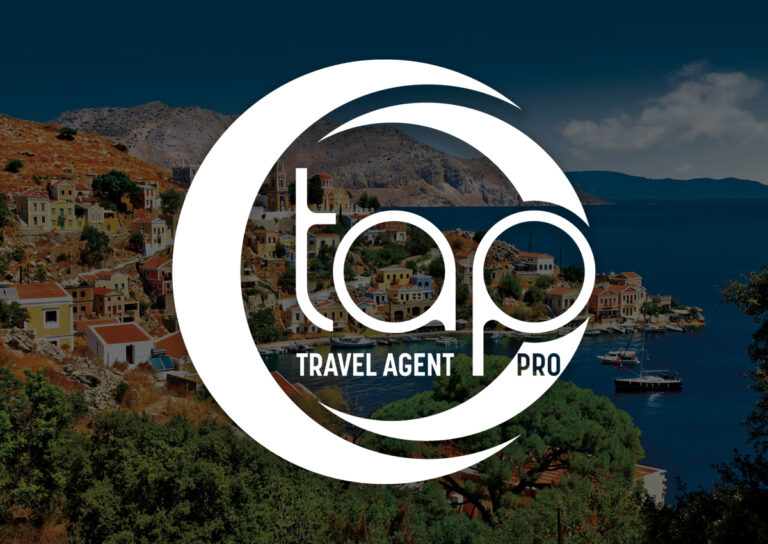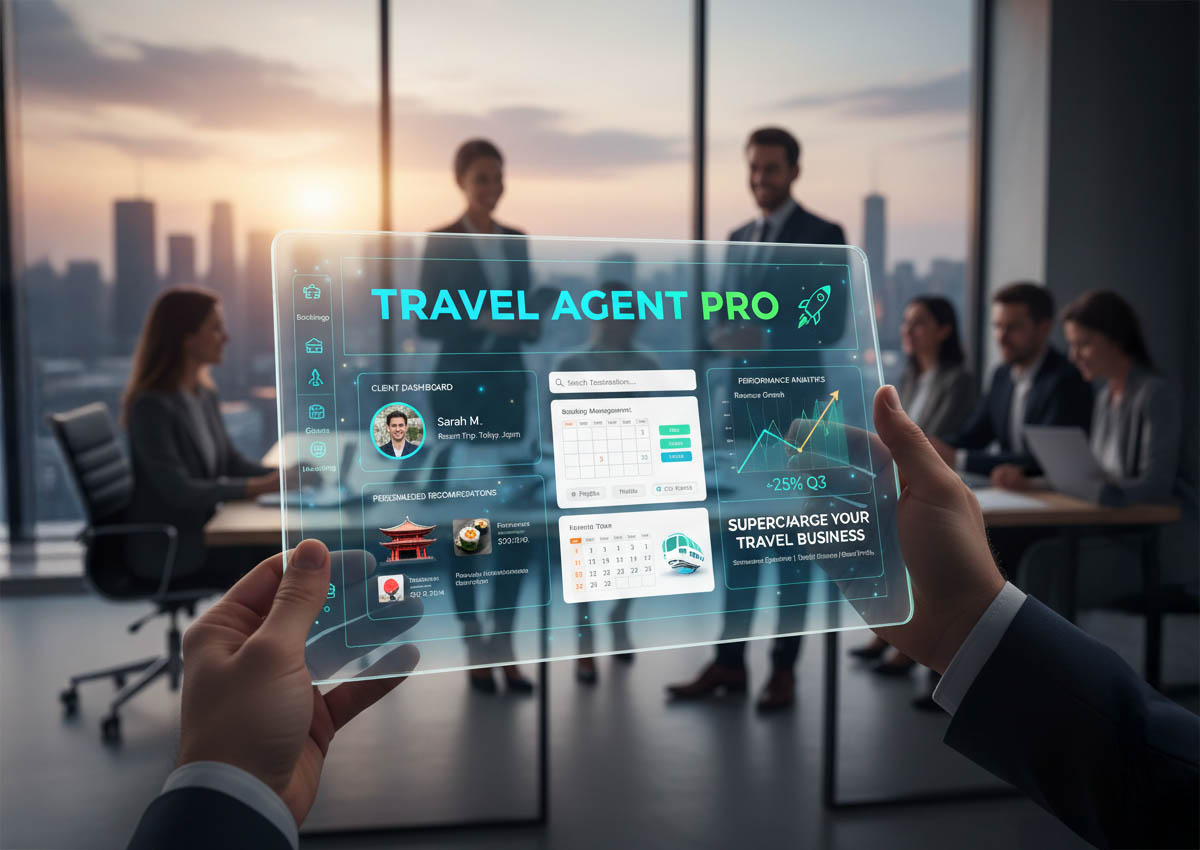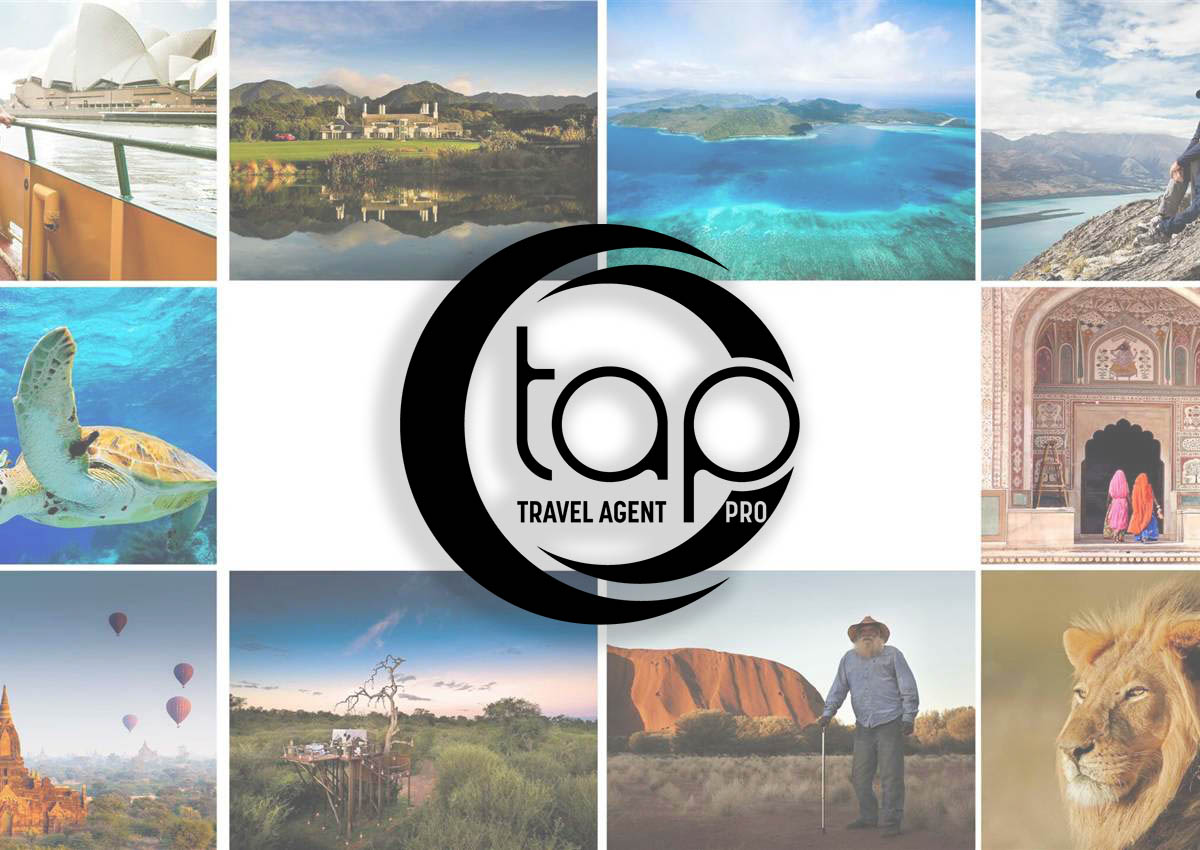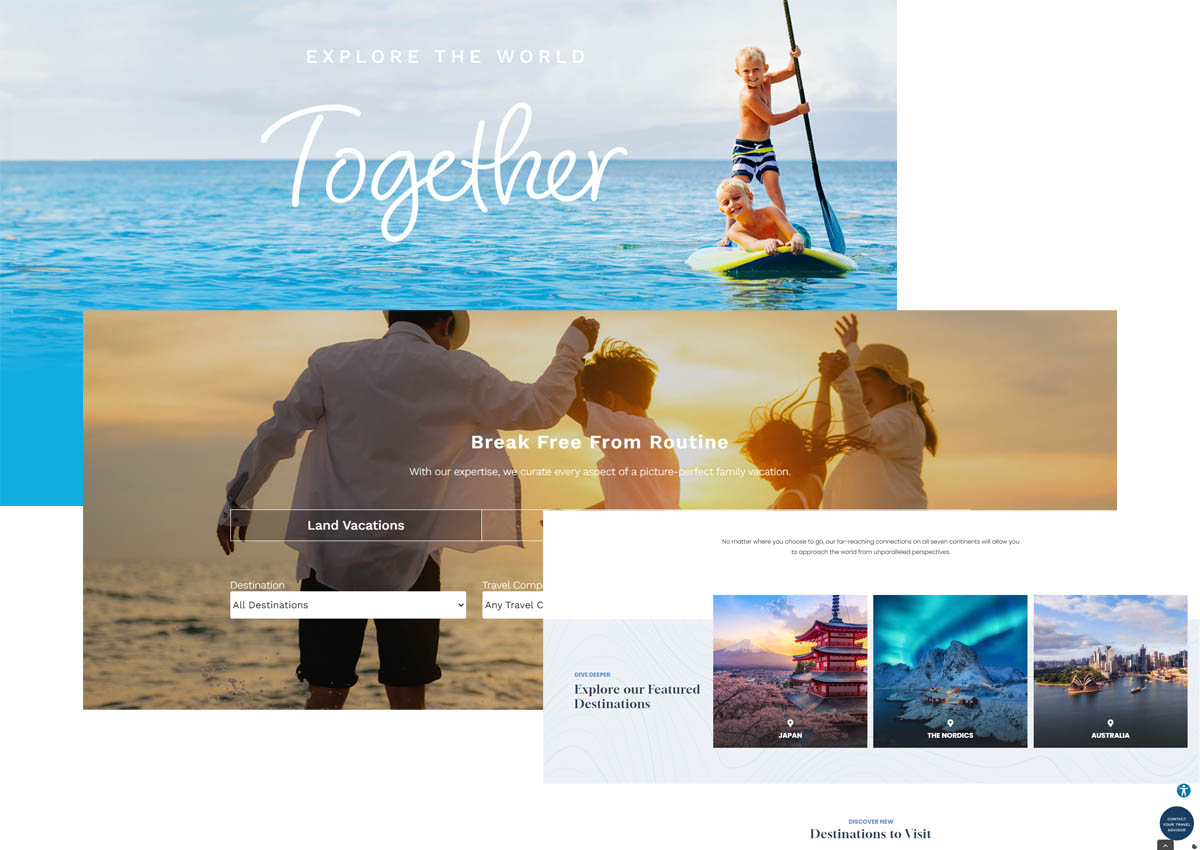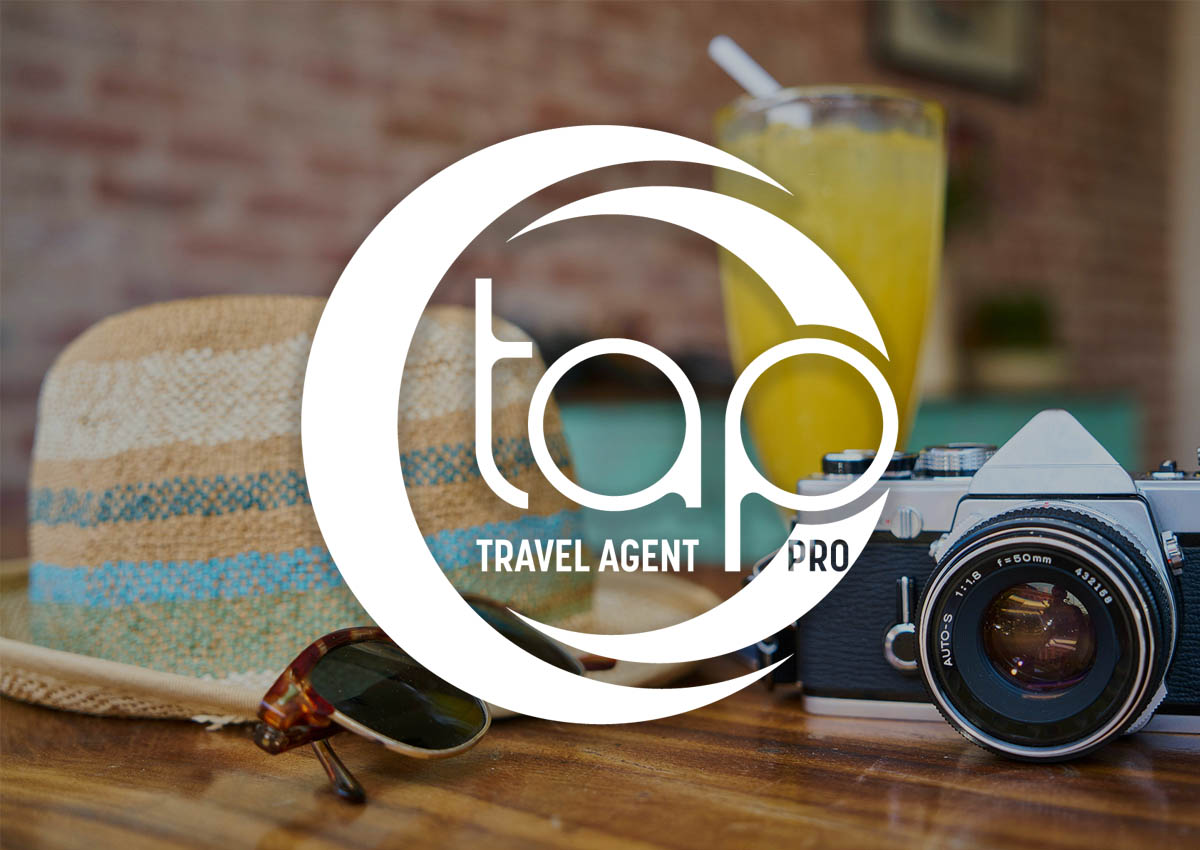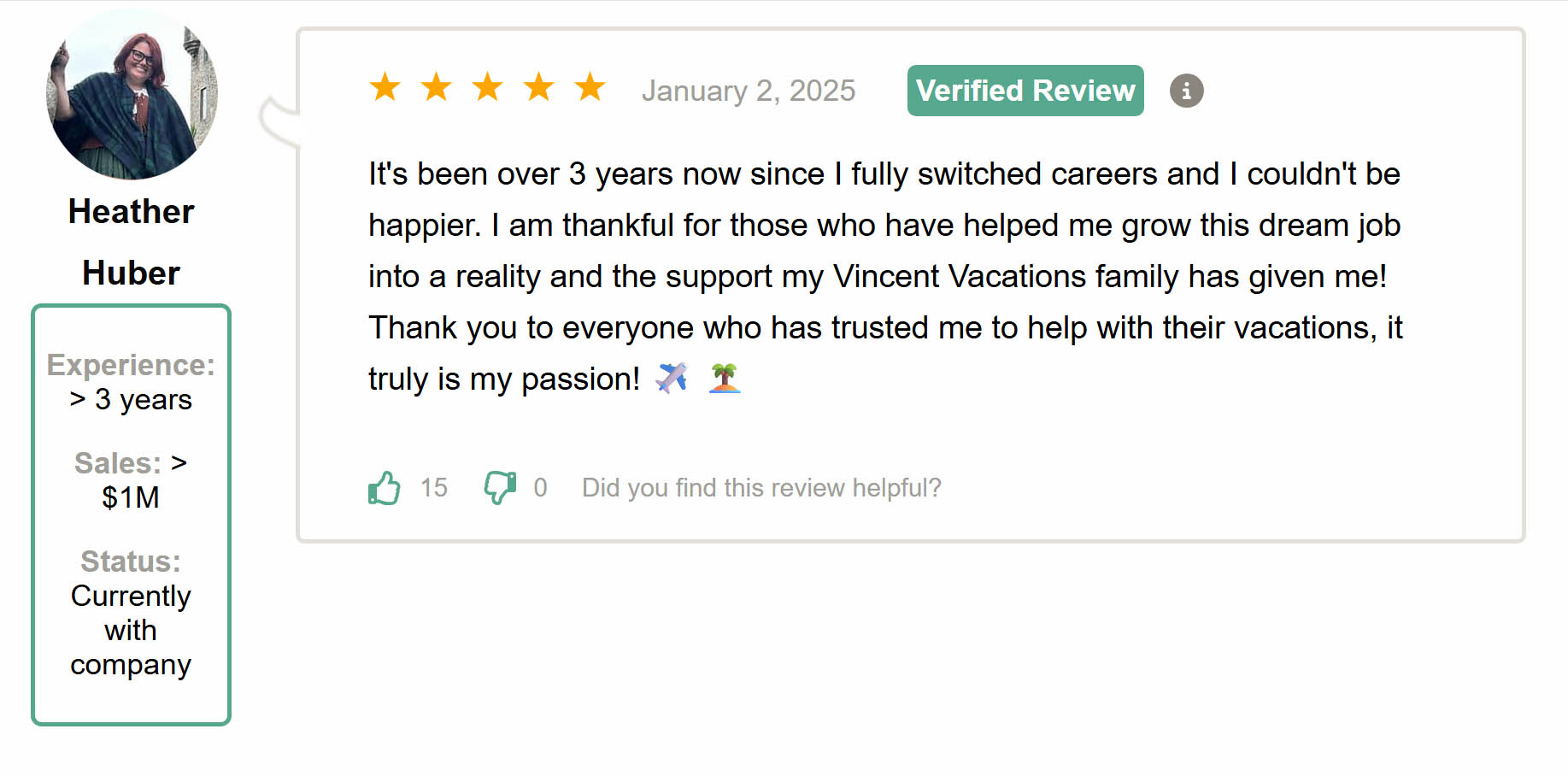Category :
Marketing & Social MediaMarketing Funnels
To learn more techniques and how to create and grow your own travel business, sign-up to become a member today!
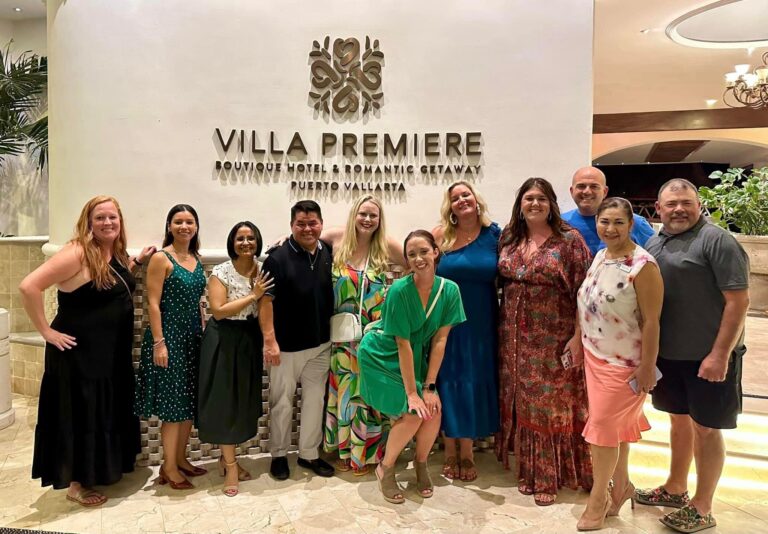
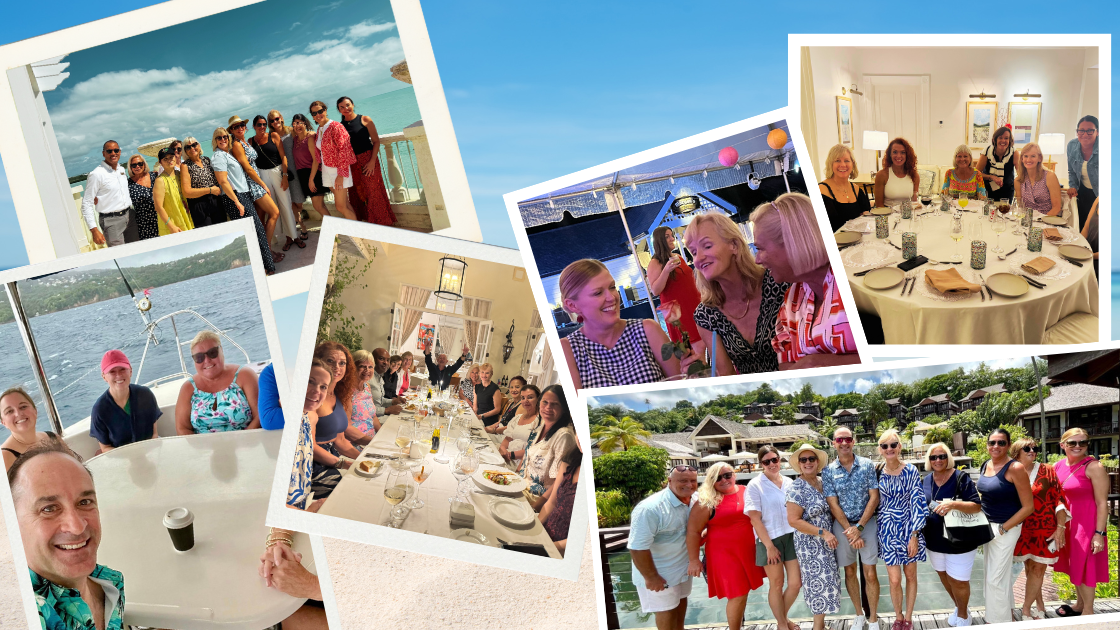
Ready to Elevate Your Travel Business?
Join Vincent Vacations, the host agency designed to help you succeed. Discover why top agents choose us:
- Membership plans offering up to 100% commission.
- Proud member of the prestigious Signature Travel Network.
- Direct access to top tier preferred suppliers.
- Ongoing education, exclusive FAM trips, and much more.

- Unlock your earning potential with proven marketing funnel strategies tailored for travel agents.
- Join Vincent Vacations and gain access to exclusive training and resources to master these funnels.
- Transform leads into loyal clients and build a thriving travel business with our support.
As a travel agent, effectively using marketing funnels can significantly enhance your ability to attract and retain clients. A marketing funnel represents the journey of a potential customer from first learning about your services to making a booking and beyond.
You can transform your travel business after you learn how to align your marketing activities each day/week/month/year to your funnel and sales goals.
Let’s look at the purpose, conversion, and tactics for each of the three levels of the funnel. The three main parts of a marketing funnel, which represent the customer journey, are:
Marketing Funnel Stages
Top of the Funnel (TOFU) - Awareness Stage
Objective: Attract potential customers and make them aware of your brand or product.
Strategies: Content marketing (blogs, articles, videos), social media engagement, SEO for organic search, paid advertising, public relations, and events.
Key Metrics: Website traffic, social media engagement, ad impressions.
Middle of the Funnel (MOFU) - Consideration/Evaluation Stage
Objective: Nurture the leads acquired in the TOFU stage by providing more information, answering questions, and building interest.
Strategies: Email marketing, targeted content (webinars, eBooks, case studies), retargeting ads, lead nurturing campaigns.
Key Metrics: Email open and click-through rates, content downloads, time spent on website, lead quality.
Bottom of the Funnel (BOFU) - Conversion/Decision Stage
Objective: Convert leads into customers.
Strategies: Personalized offers, sales promotions, free trials or demos, direct sales outreach, customer testimonials, and strong call-to-actions.
Key Metrics: Conversion rates, sales numbers, customer acquisition cost.
Each stage of the funnel involves different strategies and goals, aimed at moving potential customers from initial awareness of your product or service to making a purchase and becoming loyal customers.
Utilizing Marketing Funnels: A Stage-by-Stage Guide
Awareness Stage
Objective: Make potential clients aware of your travel services.
Strategies: Use social media marketing, SEO, content marketing (like blogs and travel articles), and paid advertising to reach a broad audience. Participate in travel expos and community events.
Content Marketing: Create engaging content such as travel blogs, destination guides, and travel tips. Share these on your website and social media platforms.
Social Media Advertising: Use targeted ads on platforms like Facebook and Instagram to reach potential clients.
SEO Optimization: Optimize your website for search engines to increase visibility.
Partnerships: Collaborate with local businesses or travel influencers to expand your reach.
Interest Stage
Objective: Generate interest in your travel packages and services.
Strategies: Share engaging content such as beautiful destination images, travel tips, client testimonials, and exclusive offers. Use email newsletters to keep your brand in the minds of potential clients.
Email Marketing: Collect email addresses through your website (via sign-up forms offering travel tips, newsletters, or ebooks) and send regular, engaging emails about destinations, special offers, or travel stories.
Retargeting Ads: Use retargeting ads to keep your agency in the minds of people who have visited your website but haven't made a booking.
Consideration Stage
Objective: Encourage potential clients to consider your services for their travel needs.
Strategies: Showcase detailed travel packages, offer free travel consultation calls, and provide informative content like destination guides and itineraries. Engage with your audience through Q&A sessions or webinars.
Personalized Communication: Offer personalized travel recommendations based on the customer's interests or past behavior.
Webinars or Online Events: Host informative webinars or Q&A sessions on popular travel destinations or travel tips.
Conversion Stage
Objective: Lead potential clients to show a clear intent to book with you.
Strategies: Follow up with leads through targeted email campaigns, remarketing ads, and personalized offers. Provide incentives like early-bird discounts or additional services for booking through you.
Special Offers and Packages: Provide limited-time offers or exclusive packages to nudge interested leads into making a booking.
User-Friendly Booking Process: Ensure that your website offers a seamless booking experience.
Advocacy Stage
Objective: Retain the client for future travel plans and referrals.
Strategies: Offer excellent post-booking service, seek feedback, and handle any issues promptly. Keep in touch with clients through email marketing, providing them with new offers, travel tips, and loyalty discounts.
Encourage Reviews and Testimonials: Request satisfied clients to leave reviews or testimonials, which can be shared on your website and social media.
User-Generated Content: Encourage clients to share their travel experiences on social media and tag your agency.
Follow-up Surveys: Send follow-up surveys to gather feedback and improve your services.
Exclusive Deals for Repeat Customers: Offer special deals or loyalty rewards to encourage repeat bookings.
Referral Programs: Implement a referral program where existing clients get benefits for referring new customers.
Throughout this funnel, it's crucial to track and analyze data to understand what strategies are most effective and where potential clients might be dropping off. Use tools like Google Analytics, CRM software, and email marketing metrics to continually refine your approach.
By guiding potential clients through this funnel with targeted strategies at each stage, you can increase your client base and build a loyal customer community.
Best Practices for Utilizing Marketing Funnels:
Personalization
Tailor your interactions and content based on the customer’s preferences and past interactions.
Multi-Channel Approach
Engage with your audience across various platforms like social media, email, your website, and offline channels.
Data Analysis and Optimization
Regularly analyze the data at each stage of the funnel to understand what’s working and what’s not. Use this insight to optimize your strategies.
Customer Relationship Management (CRM)
Utilize CRM software to track leads and manage relationships with potential and existing clients efficiently.
Content Variety
Use a mix of content types (blogs, videos, images, infographics) to engage clients at different funnel stages.
By understanding and effectively utilizing the marketing funnel, you can guide potential clients through their decision-making process, increasing the likelihood of converting them into loyal customers. This approach ensures that you are not just attracting leads, but also nurturing them into long-term clients.
Learn more about this by signing up as a member, today! Vincent Vacations Application Form.
To learn more techniques and how to grow your travel business, read more on our Articles page.



